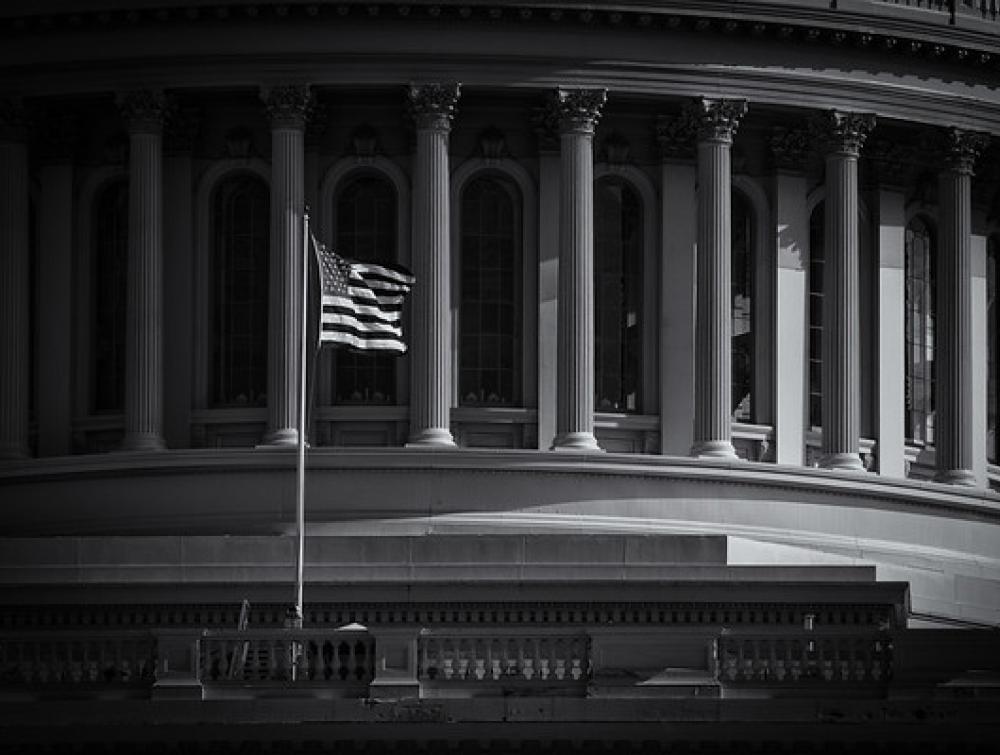Mining bill would provide total control, zero accountability to mining companies on public lands

US Capitol
Mason Cummings, TWS
TWS criticizes bill that would pull the only teeth archaic public lands mining law actually has
WASHINGTON, DC (April 25, 2023) – Today, Senator Catherine Cortez Masto and Senator Jim Risch introduced the Mining Regulatory Clarity Act, a proposal that would make more public lands available to mining companies, prioritizing toxic mining over all other public lands uses – from responsible renewable energy to recreation to cultural and ecological conservation.
The Wilderness Society released the following statement about the proposal:
“It’s high time we stop giving mining and drilling companies first dibs on how we use public lands,” said Kiara Tringali, Senior Government Relations Representative at The Wilderness Society. “The 150-year-old law that governs mining in the U.S. is severely outdated, already incredibly permissive to the mining industry, and offers no protections for communities and public lands facing the threat of toxic mining. This proposal would essentially remove the only teeth the General Mining Law of 1872 has: the requirement that a mining company prove it’s found valuable locatable minerals in the ground it plans to mine.”
If enacted, this statute would ensure mining activities supersede all other public land values on “claimed” land – effectively blocking all other uses including recreation, natural carbon storage, or renewable energy projects.
Public lands and waters house some of the nation’s best solar, wind and geothermal resources and the “smart from the start” approach helps ensure any renewable energy development on public lands is done responsibly by siting projects in places that have high energy potential and low impact on wildlands, wildlife and cultural resources. While the transition to a renewable energy economy will require additional minerals – some of which may be sourced from public lands – the absolute control the Mining Regulatory Clarity Act would hand to mining companies would sabotage the crucial role public lands can and should play in responsible renewable energy production.
“We need a rapid transition to a renewable energy economy and public lands have a huge role to play, but that cannot come at the expense of our lands, waters, biodiversity or communities – whether we’re talking about energy generation, transmission or sourcing minerals. By catering to and removing all accountability for mining companies, the Mining Regulatory Clarity Act could make some of the best and smartest lands for solar and wind projects unavailable,” said Kiara Tringali, Senior Government Relations Representative at The Wilderness Society.
If passed into law, the Mining Regulatory Clarity Act would upend more than a century of practice, considering mining claims under the General Mining Law of 1872 to be valid by default, even before the claiming company (or claimant) has proven a mineral discovery. Currently, under the 1872 Mining Law, mining rights fully vest only after the claimant discovers valuable minerals. The courts have upheld this legal requirement through multiple decisions, including the 9th U.S. Circuit Court of Appeals’ ruling last year, which blocked the Rosemont copper mine in southern Arizona, and, most recently, U.S. District Judge Larry Hicks’ ruling in Reno earlier this month.
Under the Mining Regulatory Clarity Act, a claimant would no longer need to prove it discovered valuable minerals in order to claim mining rights on unwithdrawn public lands. It could do so simply by putting four stakes in the ground, paying a small fee (around $150) and filing some paperwork. Once a company held those mining rights, land management agencies would have no discretion to consider other valuable public resources and uses of those lands – meaning that impacts to watersheds, wildlife, and cultural and community resources would be ignored.
The mining industry currently operates on public lands under an archaic mining law from 1872 that contains inadequate environmental protections for communities and no requirements for a mining company to pay to clean up its pollution after it leaves town. Additionally, and unlike other policies that govern extractive industries’ behavior on public lands, the 1872 Mining Law allows mining companies to claim control over the land without paying any royalty or rental fees. This means that in addition to shouldering both the pollution and clean-up costs of toxic mining activities, communities don’t even get some compensation when private mining companies snatch up the public lands that the government is supposed to be managing in the public’s interest.
In contrast to the Mining Regulatory Clarity Act, Members of Congress including Representative Raúl Grijalva and Senator Martin Heinrich are pushing legislation to modernize the outdated General Mining Law to address these issues. The Biden administration has also highlighted the need to reform the 1872 law and agency regulations, convening the Interagency Working Group on Mining Reform.
###
For more information, contact Tony Iallonardo at newsmedia@tws.org.
